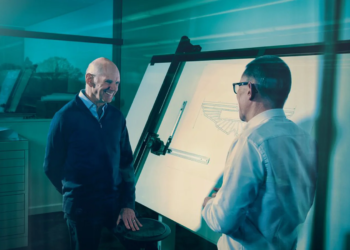Formula 1’s Power Unit manufacturers have begun testing sustainable fuels ahead of a future switch to bio-fuels when a new engine is introduced in 2026 – or possibly 2025 if agreement is reached to bring its introduction forward by a year.
The FIA and F1 are working to become carbon neutral from 2021 and achieve net zero status by 2030.
Part of those plans include switching to 100 per cent sustainable fuels when a new Power Unit is introduced, and the FIA confirmed that samples have been sent to F1 manufacturers for the purposes of testing.
“One of the most significant steps to achieving this goal has been the research, development and production by the FIA’s Technical Department of a 100% sustainable fuel, developed to stringent F1 specifications, able to power Formula One cars,” the FIA said in its environmental strategy review.
“As a second-generation biofuel variety, meaning it is exclusively refined using bio-waste, not intended for human or animal consumption, the first barrels are now with F1’s Power Unit manufacturers for testing and validation.”
It’s hoped F1 teams will work with existing and new suppliers to eventually develop their own fuels in future.
“The objective is to demonstrate the technology works and to lead F1 suppliers to develop their own fuels, with the mandatory requirement of 100% sustainable fuels in F1 targeted by the introduction of the new powertrain architecture.”
Ross Brawn, F1’s managing director of motorsports, hopes the sport can lead the development of such fuels and have a positive impact on the ‘real world’ automotive sector.
“Formula 1 has long served as platform for introducing next generation advancements in the automotive world. We are delighted by the momentum on sustainable fuels which perfectly aligns with our plan to be net zero carbon as a sport by 2030,” said Brawn.
“Our top sustainability priority now is building a roadmap for the hybrid engine that reduces emissions and has a real world benefit for road cars. We believe we have the opportunity to do that with a next generation engine that combines hybrid technology with sustainable fuels.”
Jean Todt, FIA President, added: “FIA takes its responsibility in leading motor sport and mobility into a low carbon future to reduce the environmental impacts of our activities and contribute to a greener planet. I’m glad that our Members Clubs approve our environmental strategy that is part of the Purpose Driven initiative focused on the societal contribution of our two pillars. By developing sustainable fuel made from bio waste that can power Formula 1, we are taking a new step forward. With the support of the world’s leading energy companies, we can combine the best technological and environmental performance.”










By the end of the next decade cars will be much lighter than current models and will run on engines powered by fully synthetic fuels, burning cleanly, and giving far more miles per gallon. The electric aberrations will be museum pieces, invoking amusement for their ridiculous impracticality as a mode of personal transport.